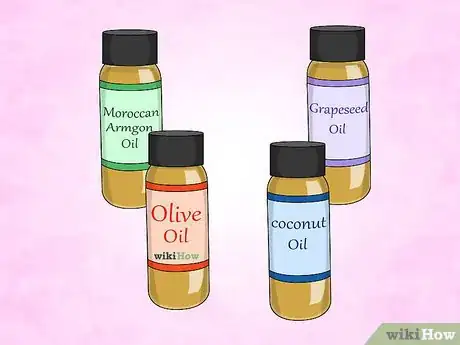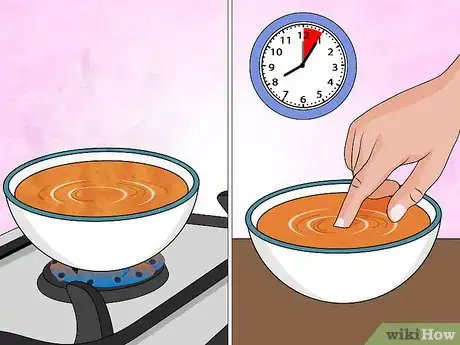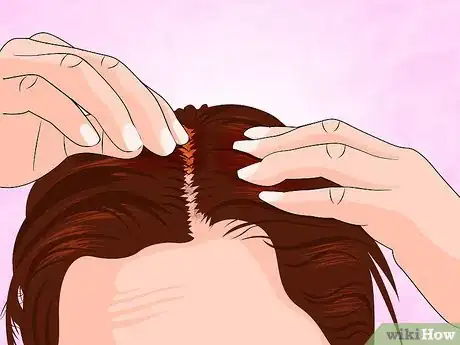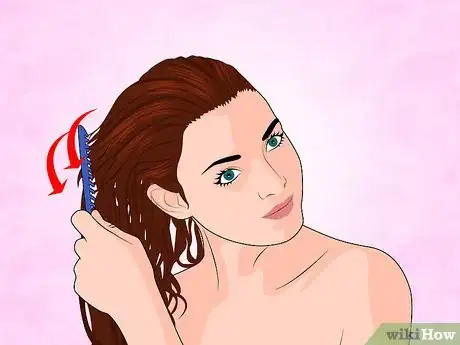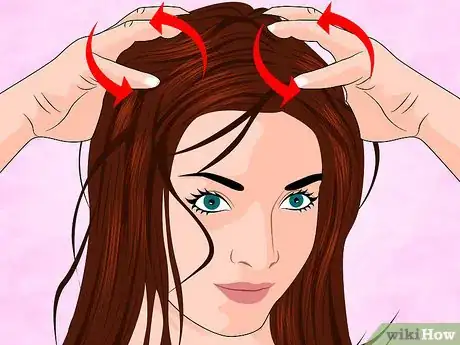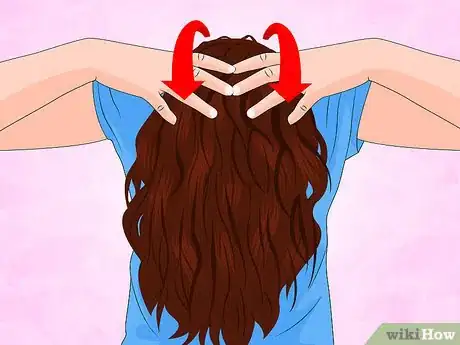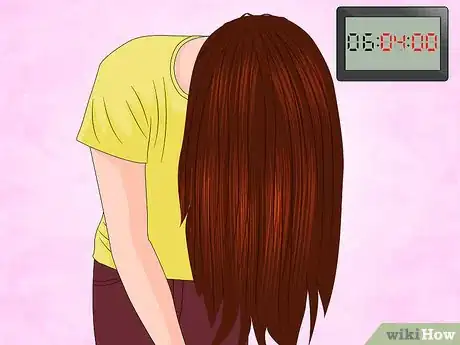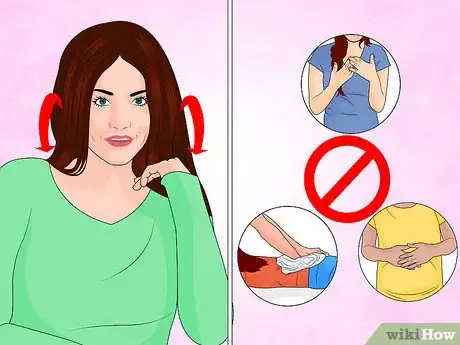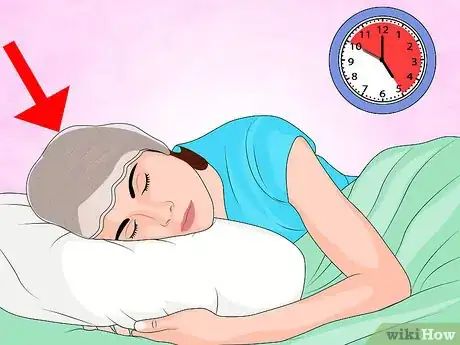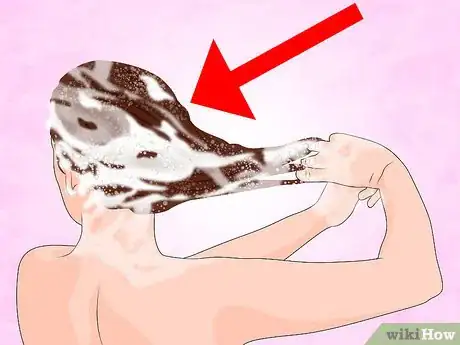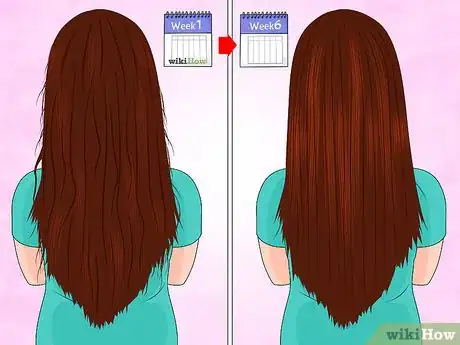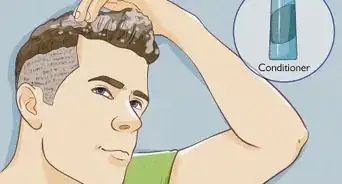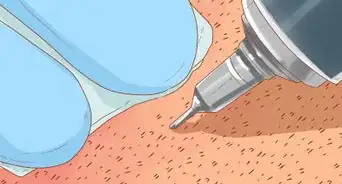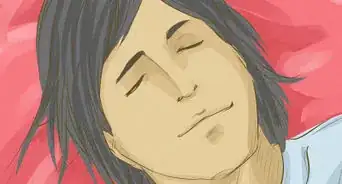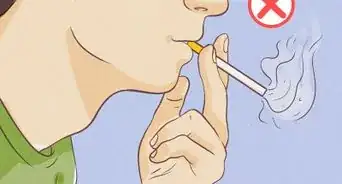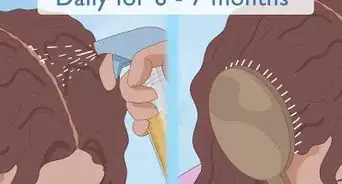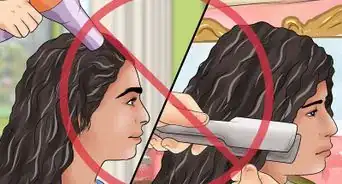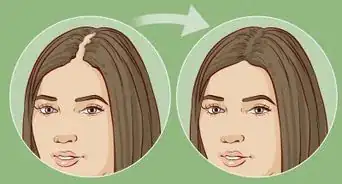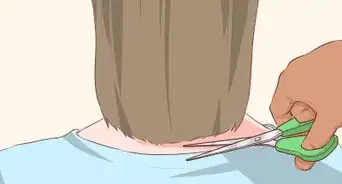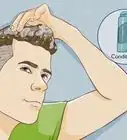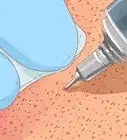This article was co-authored by Courtney Foster. Courtney Foster is a Licensed Cosmetologist, Certified Hair Loss Practitioner, and Cosmetology Educator based out of New York City. Courtney runs Courtney Foster Beauty, LLC and her work has been featured on The Wendy Williams Show, Good Morning America, The Today Show, The Late Show with David Letterman, and in East/West Magazine. She received her Cosmetology License from the State of New York after training at the Empire Beauty School - Manhattan.
There are 7 references cited in this article, which can be found at the bottom of the page.
wikiHow marks an article as reader-approved once it receives enough positive feedback. This article received 26 testimonials and 89% of readers who voted found it helpful, earning it our reader-approved status.
This article has been viewed 747,184 times.
Do you want to regrow hair or grow hair faster? One of the most popular ways to do this is through the inversion method. First, you apply oils to your scalp and then you hang your head upside down for a short period of time. Proponents argue that the increased blood flow to your scalp reinvigorates slowly-growing hair follicles, thus increasing growth. No scientific evidence exists that proves or disproves the inversion method's ability to regrow hair or to grow hair faster on normal scalps, although there is some evidence that baldness may be caused by reduced blood flow in the scalp.[1] For every success story touting the wonders of the inversion method,[2] there is another debunking its claims. Either way, why not try it for yourself?
Steps
Applying Oil to Your Head
-
1Choose your oil. There is not one agreed upon oil for the inversion method. Try olive oil, castor oil, coconut oil, grape seed oil, or Moroccan argon oil, if you want to use natural ingredients.[3]
- Choose an oil with an aroma that you find soothing. Since the inversion method incorporates massage, pick a scented oil that you find relaxing.[4]
-
2Warm up oil. Warm up around 3–4 tablespoon (44–59 ml) oil. Take a cup of hot water and place your oil bottle in it. You can get this water from the sink. Let the oil sit for a minute or so until it is warm to the touch. Your goal is to increase blood flow to your scalp. Warmer oil will increase the blood retention in your scalp cells. Do not overheat the oil. You don’t want to burn your scalp.Advertisement
-
3Apply oil to your scalp.[5] If you’ve experienced hair loss, make sure that you cover your problem areas first, then proceed to cover the remainder of your scalp. Make sure that you cover your entire scalp with a thin layer of oil. It doesn't take a lot of oil to achieve full coverage.
-
4Comb the oil through the rest of your hair. If your hair tends to split or break, try to spread oil to all of your hair. Hair splits or breaks when it is short on moisture and nutrients. Natural oils will help replenish both.
- If you have curly hair, be gentle or avoid this step altogether. You don’t want to pull out more hair in the process.
Stimulating Your Hair Follicles
-
1Massage gently. With the tips of your fingers, knead your scalp. Move your fingers in little circles - clockwise and then counterclockwise. Don't be afraid to use your palms in addition to your fingers.Your palms can apply pressure to a greater area at one time.
- Focus on your problem areas, but don’t forget about the rest of your scalp. Do not massage too hard or you might unintentionally rip out hair or damage hair follicles. Massage for 4 minutes and then stop.
-
2Tip your head upside down. You can do this over a sink or bathtub. Alternatively, you could choose to sit upside down in a chair with your legs over the back of the chair. No matter how you choose to do it, let your hair hang loosely and hold your head at a comfortable angle. Your goal is to find a comfortable position and to relax.
-
3Hold this position for 4 minutes. This gives the oils enough time to seep into your scalp while letting gravity increase the blood flow to the scalp. Take deep breaths. Clear your mind. Relax. This step resembles meditation.
-
4Sit back up. Come up slowly, or else you may feel dizzy, faint, or weak.[6]
- Do not try the inversion method if you have low or high blood pressure, a detached retina, an ear infection, a spinal injury, heart problems, a hernia, or are pregnant. The inversion position itself could exacerbate your condition or cause further injury.
-
5Consider leaving the oil on for a longer period of time. If you have an incredibly dry scalp, this might be a good decision. Some suggest leaving it in your hair for a couple of hours or even overnight.
- Take a plastic bag and cover your hair so you don't get any oil on your clothes, furniture, or bed. You can use a normal grocery bag or purchase a plastic wrap meant for hair treatments. You can purchase these from any beauty shop.
- If you decide to leave the oil in your hair for longer period of time, know that it could make your scalp and hair too oily. This could cause your follicles to clog up rather than grow new hair.
-
6Wash your hair. Be sure to completely rinse out all the leftover oil. If you miss a spot, it will be far "greasier" than the other parts of your head. Make sure that you don’t use a harsh shampoo. Harsher shampoos (with a pH higher than 7) will strip your hair’s natural oils.[7] Shampoos like L'Oreal EverCreme Intense Nourishing or Heads and Shoulders work well. Generally, any shampoo geared towards dry scalps have lower pH balances.
-
7Repeat every 3-4 weeks. Depending on your personal condition, you might find it helpful to perform this treatment every 3 weeks. Repeated use at a higher frequency could make your hair too oily and may even clog your hair follicles, further reducing your hair growth potential.[8]
- Keep in mind that results will vary based on the person.
Expert Q&A
-
QuestionWould any oil work for the method (such as jojoba, Almond, or peppermint)?
 Jennifer Boidy, RNJennifer Boidy is a Registered Nurse in Maryland. She received her Associate of Science in Nursing from Carroll Community College in 2012.
Jennifer Boidy, RNJennifer Boidy is a Registered Nurse in Maryland. She received her Associate of Science in Nursing from Carroll Community College in 2012.
Registered Nurse You can use the oil of your preference. Just make sure to first test the oil on a small obscure area of skin first to make sure you don’t have an allergic reaction, especially if the oil has any added scents. Just rub some of the oil on the chosen area and wait 48 hours to see if the area develops any kind of redness or irritation. If it does, you should not use it on your scalp.
You can use the oil of your preference. Just make sure to first test the oil on a small obscure area of skin first to make sure you don’t have an allergic reaction, especially if the oil has any added scents. Just rub some of the oil on the chosen area and wait 48 hours to see if the area develops any kind of redness or irritation. If it does, you should not use it on your scalp. -
QuestionWhat if the oil isn't warmed up? Will I still get the same results?
 Jennifer Boidy, RNJennifer Boidy is a Registered Nurse in Maryland. She received her Associate of Science in Nursing from Carroll Community College in 2012.
Jennifer Boidy, RNJennifer Boidy is a Registered Nurse in Maryland. She received her Associate of Science in Nursing from Carroll Community College in 2012.
Registered Nurse The theory is that using warm oil increases the stimulation of the scalp due to the increased temperature. You may or may not get the same results by not warming the oil.
The theory is that using warm oil increases the stimulation of the scalp due to the increased temperature. You may or may not get the same results by not warming the oil.
References
- ↑ http://www.sciencedirect.com/science/article/pii/0022202X89901899
- ↑ http://lovelovething.com/how-to-grow-hair-faster/
- ↑ Courtney Foster. Licensed Cosmetologist. Expert Interview. 9 December 2019.
- ↑ http://www.naturallycurly.com/curlreading/home/grow-1-inch-a-week-the-science-behind-the-inversion-method/
- ↑ Courtney Foster. Licensed Cosmetologist. Expert Interview. 9 December 2019.
- ↑ http://www.mayoclinic.org/diseases-conditions/orthostatic-hypotension/basics/definition/CON-20031255
- ↑ http://www.thankyourbody.com/ph-balanced-shampoo-recipe/
- ↑ https://lovelovething.com/how-to-grow-hair-faster/
About This Article
To use the inversion method to grow your hair, start by heating some oil, like olive oil or coconut oil, until it's warm. Then, apply the warm oil to your scalp, and carefully comb it through all of your hair. Next, gently massage the oil into your scalp for about 4 minutes before turning your head upside down. Finally, hold your head this way for 4 minutes to increase blood flow to your scalp. Repeat the process once every 3-4 weeks. To learn how to safely warm up your oil, scroll down!
